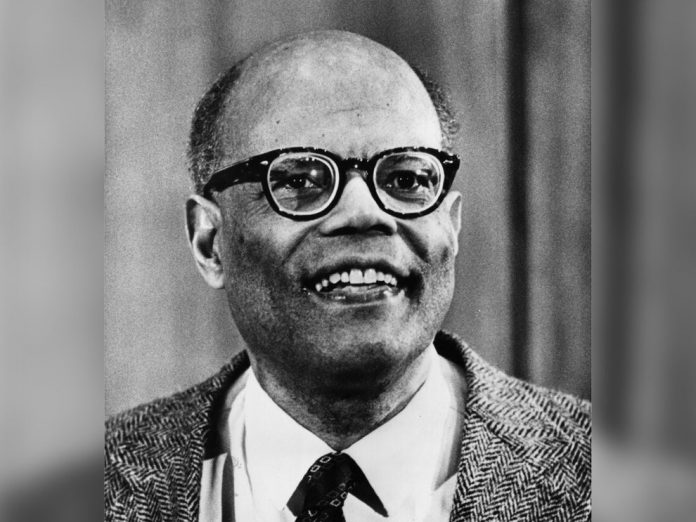Google has honoured economist and professor Sir W Arthur Lewis with a Doodle on December 10 — the day he was awarded the Nobel Memorial Prize in economics 41 years ago.
Sir William Arthur Lewis (23 January 1915 – 15 June 1991) was a Saint Lucian economist well known for his contributions in the field of economic development. In 1979 he won the Nobel Memorial Prize in Economics. Sir Arthur Lewis broke one barrier after another by the sheer dint of his brilliance. He was a scholar and served as an economic advisor to many international commissions and to several African, Asian and Caribbean governments. He was also the first Black professor in Britain’s university system and also at Princeton University in the United States later on. Arthur Lewis was the first person of African origin to receive a Nobel Prize in a field other than peace. He contributed significantly to the British government policy in his early years, and later in his life applied his economic development ideas as a consultant to various African governments.
Early life and education
Arthur Lewis was born in Castries, Saint Lucia on 23 January 1915, then still a British territory in the Caribbean, as the fourth of five children of George Ferdinand Lewis and Ida Louisa Lewis. His parents had migrated from Antigua shortly after the turn of the century. George Lewis died when Arthur turned seven, and Ida raised their five children alone. Arthur was a gifted student and was promoted two classes ahead of his age.After finishing school at the age of 14, Lewis worked as a clerk, while waiting to take his university entrance exam. During this time he became friends with Eric Williams, the future first prime minister of Trinidad and Tobago, and the two remained lifelong friends.
After gaining his Bachelor of Science degree in 1937 and a Ph.D. degree in 1940 at the London School of Economics
Career
In 1938, Sir Arthur Lewis was given a one-year teaching appointment at LSE and the next year it was extended into a four-year contract as an Assistant Lecturer. By 1948, he had become a full time professor at the University of Manchester and that too when he was only 33 years old. He spent a decade in the University of Manchester as a Stanley Jevons professor of political economy. Here he distinguished himself in academic scholarship and professional achievement earning the title “Consultant Physician of the Ailing Economics”.
Sir Arthur Lewis served as a consultant to a number of organizations like the Caribbean Commission. He was also a member of the Colonial Advisory Economic Council (from 1951 to 1953), Committee for National Fuel in Britain, United Nations Group of Experts and Board of Governors of Queen Elizabeth House in Oxford. He also served as a consultant to a number of African and Caribbean governments like Trinidad and Tobago, Jamaica, Nigeria, Barbados and Ghana. Sir Arthur Lewis was also the managing director of the United Nations Special Fund in 1950.
In 1959, Arthur Lewis accepted the post of Head of the Department of Economics at the University of the West Indies (UWI). He also became the first West Indian born to head the University, serving as Principal and then as Vice Chancellor. As head of the University, he was responsible for expanding it to a full-fledged independent institution, with enrollment increasing from 690 to over 2000. He also established the School of Engineering at the University, solely because of his ability to attract funds from the Ford Foundation and the United Nations. He served at the University until 1963. From 1966-1973 he served as Chancellor of the University of Guyana.
In 1963, Sir Arthur accepted the post as Professor of Public and International Affairs at the Princeton University. Later he was given the prestigious position as James Madison Professor of Political Economics. In 1971, Sir Arthur returned to the Caribbean to set up the Caribbean Development Bank where he served as its first President until 1973 and then returned to Princeton until his retirement in 1983.








